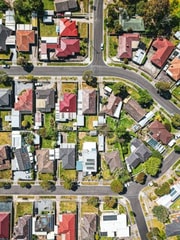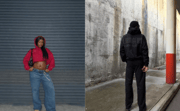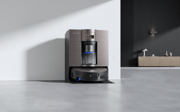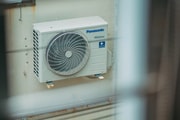Entity proposes bold initiative to secure state’s water supply beyond 2032
By
Seia Ibanez
- Replies 17
As we navigate through the 21st century, the challenges of sustainable living and resource management are becoming increasingly apparent. One of the most critical resources under scrutiny is our water supply.
In Sydney, a city that has faced its fair share of droughts and water restrictions, the conversation around water security is more relevant than ever.
Sydney Water, the entity responsible for providing water services to the metropolitan area, is spearheading a bold initiative that could transform the way Sydneysiders think about their tap water.
The proposal on the table is the construction of a Purified Recycled Water (PRW) facility within the next decade.
This move aims to reduce Greater Sydney's heavy reliance on rainwater, which currently stands at 85 per cent.
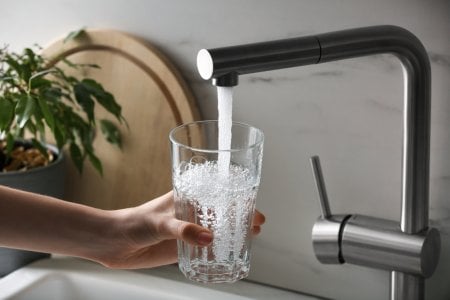
It also warned that the ‘current sustainable water supply is insufficient to meet the average demand for drinking water now, and without new RFIS (rainfall-independent water supplies), this supply shortfall is predicted to increase over time’.
The PRW facility would take water that has been used in homes—from showers, sinks, and toilets—and purify it through a series of advanced processes to meet the strict Australian Guidelines for Water Recycling.
The concept of drinking recycled wastewater might raise some eyebrows, but it's important to note that this technology is not new.
It's already in use in many parts of the world, including California, the United States, South Africa, the United Kingdom, Singapore, and Perth, Western Australia.
These places have demonstrated that with the right technology and processes, recycled water can meet strict safety standards and provide a reliable water source.
Sydney Water has enlisted the help of Dr Kirsten Banks, a Wiradjuri astrophysicist and social media personality, to demystify the technology and garner community support.
Dr Banks drew parallels with the water recovery systems used on the International Space Station, where astronauts rely on recycled water for survival.
‘Up in space on the International Space Station, astronauts rely on recycled water to survive … they use water recovery systems to reclaim water from their urine, sweat and even the moisture from their breath,’ Banks said.
‘This reclaimed water goes through a rigorous filtration and purification process, ensuring it’s safe to drink.’
Dr Banks has even tasted purified recycled water from California and attests to its quality, noting no discernible difference from regular water.
However, she acknowledges the initial hesitancy some might feel and emphasizes the importance of making an informed decision.
The plan includes a new PRW Treatment Plant at Quakers Hill, with a pipeline to the Prospect Reservoir.
If approved, the project could see water flowing by mid-2032. Sydney Water has also established a Purified Recycled Water Discovery Centre in Quakers Hill, where the community can learn about the technology and see it in action.
Despite the potential benefits, drinking recycled water has been politically contentious in the past.
In 2007, former NSW opposition leader Peter Debnam's election campaign suffered due to his recycled water plan.
Similarly, in the United Kingdom, protests have erupted over a proposed recycling water plant at Langstone Harbour, with some arguing for cheaper and more sustainable alternatives.
Sydney Water's senior project manager, James Harrington, stresses the critical nature of securing Sydney's water supply.
‘It was only a few years ago that Warragamba Dam dropped to below 44 per cent capacity,’ Harrington said.
‘Our PRW technology could one day be used to produce safe and clean drinking water under similar, or worse, drought conditions.’
‘For now, the first step is showing the community we have the technology to process and treat recycled water, and excitingly this process is now going through rigorous testing and approval stages.’
 What are your thoughts on this cutting-edge proposal? Could you see yourself embracing purified recycled water, or does the idea still leave you uneasy? Share your views and experiences with water conservation and sustainability in the comments below.
What are your thoughts on this cutting-edge proposal? Could you see yourself embracing purified recycled water, or does the idea still leave you uneasy? Share your views and experiences with water conservation and sustainability in the comments below.
In Sydney, a city that has faced its fair share of droughts and water restrictions, the conversation around water security is more relevant than ever.
Sydney Water, the entity responsible for providing water services to the metropolitan area, is spearheading a bold initiative that could transform the way Sydneysiders think about their tap water.
The proposal on the table is the construction of a Purified Recycled Water (PRW) facility within the next decade.
This move aims to reduce Greater Sydney's heavy reliance on rainwater, which currently stands at 85 per cent.

Sydney Water proposed the construction of a Purified Recycled Water facility within the next decade. Credit: Shutterstock
It also warned that the ‘current sustainable water supply is insufficient to meet the average demand for drinking water now, and without new RFIS (rainfall-independent water supplies), this supply shortfall is predicted to increase over time’.
The PRW facility would take water that has been used in homes—from showers, sinks, and toilets—and purify it through a series of advanced processes to meet the strict Australian Guidelines for Water Recycling.
The concept of drinking recycled wastewater might raise some eyebrows, but it's important to note that this technology is not new.
It's already in use in many parts of the world, including California, the United States, South Africa, the United Kingdom, Singapore, and Perth, Western Australia.
These places have demonstrated that with the right technology and processes, recycled water can meet strict safety standards and provide a reliable water source.
Sydney Water has enlisted the help of Dr Kirsten Banks, a Wiradjuri astrophysicist and social media personality, to demystify the technology and garner community support.
Dr Banks drew parallels with the water recovery systems used on the International Space Station, where astronauts rely on recycled water for survival.
‘Up in space on the International Space Station, astronauts rely on recycled water to survive … they use water recovery systems to reclaim water from their urine, sweat and even the moisture from their breath,’ Banks said.
‘This reclaimed water goes through a rigorous filtration and purification process, ensuring it’s safe to drink.’
Dr Banks has even tasted purified recycled water from California and attests to its quality, noting no discernible difference from regular water.
However, she acknowledges the initial hesitancy some might feel and emphasizes the importance of making an informed decision.
The plan includes a new PRW Treatment Plant at Quakers Hill, with a pipeline to the Prospect Reservoir.
If approved, the project could see water flowing by mid-2032. Sydney Water has also established a Purified Recycled Water Discovery Centre in Quakers Hill, where the community can learn about the technology and see it in action.
Despite the potential benefits, drinking recycled water has been politically contentious in the past.
In 2007, former NSW opposition leader Peter Debnam's election campaign suffered due to his recycled water plan.
Similarly, in the United Kingdom, protests have erupted over a proposed recycling water plant at Langstone Harbour, with some arguing for cheaper and more sustainable alternatives.
Sydney Water's senior project manager, James Harrington, stresses the critical nature of securing Sydney's water supply.
‘It was only a few years ago that Warragamba Dam dropped to below 44 per cent capacity,’ Harrington said.
‘Our PRW technology could one day be used to produce safe and clean drinking water under similar, or worse, drought conditions.’
‘For now, the first step is showing the community we have the technology to process and treat recycled water, and excitingly this process is now going through rigorous testing and approval stages.’
Key Takeaways
- Sydney Water is trying to gain community support for drinking recycled wastewater by proposing a new Purified Recycled Water (PRW) facility.
- The PRW facility aims to reduce Sydney's heavy reliance on rainwater for drinking supply, with technology that can purify water from showers, sinks and toilets to meet Australian Guidelines for Water Recycling.
- Social media personality and astrophysicist Dr Kirsten Banks is collaborating with Sydney Water to educate the public about recycled water through social media videos.
- There is some public hesitancy about adopting recycled water for drinking, but Sydney Water asserts that the technology is secure and already in use in many parts of the world, as well as by astronauts aboard the International Space Station.



